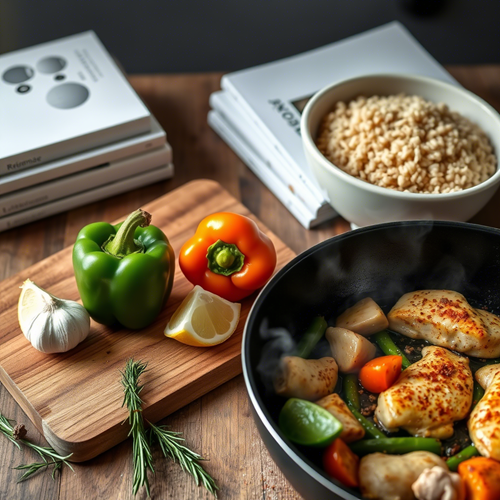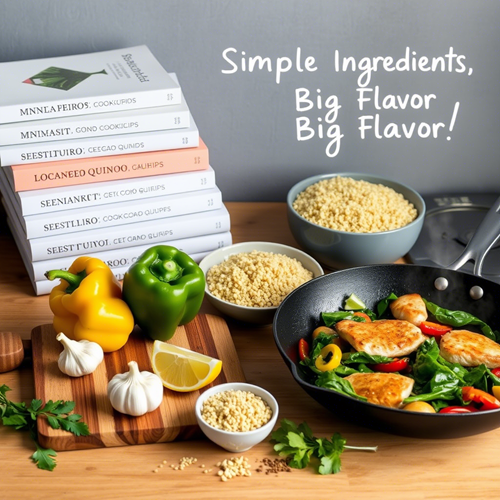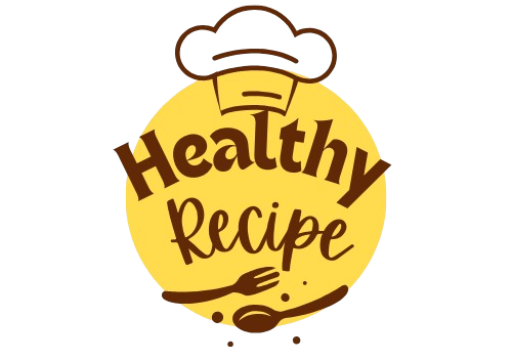Table of Contents: 5 ingredient healthy meals
Introduction
Have you ever wondered if healthy eating has to be complicated? Many people believe that nutritious meals require hours in the kitchen or a long list of exotic ingredients. But what if I told you that some of the most satisfying and wholesome dishes can be made with just five ingredients ? Sound too good to be true? Keep reading, because today we’re diving into the world of 5 ingredient healthy meals —recipes so simple, even beginners will feel like chefs!
In this blog post, we’ll explore how to whip up delicious, nutrient-packed meals using minimal ingredients while maximizing flavor. Whether you’re short on time or looking to simplify your cooking routine, these recipes are here to save the day. Let’s get started!

Overview
What makes 5 ingredient healthy meals stand out? For starters, they’re quick—most take under 30 minutes to prepare! They’re also beginner-friendly, meaning no fancy techniques or obscure tools required. Plus, by focusing on whole foods, these recipes pack a powerful nutritional punch without breaking the bank.
Here’s why these meals are special:
- Time-efficient : Perfect for busy weekdays.
- Easy to follow : No culinary degree needed!
- Nutrient-rich : Balanced macros (protein, carbs, fats) keep you energized.
- Budget-friendly : Fewer ingredients mean less waste and lower costs.
Ready to learn more? Let’s break it down step by step.
Essential Ingredients
For our 5 ingredient healthy meals , we’ll focus on versatile staples that deliver maximum nutrition with minimal effort. Here’s a closer look at the key players:
1. Protein Source
Protein is essential for muscle repair, satiety, and overall health. Choose from:
- Chicken breast
- Tofu
- Lentils
- Canned beans (e.g., chickpeas, black beans)
Substitutions: If you’re vegetarian/vegan, swap animal proteins for plant-based options like tempeh or seitan.
2. Whole Grain Base
Whole grains provide fiber and sustained energy. Options include:
- Quinoa
- Brown rice
- Farro
- Whole wheat pasta
Tip: Opt for gluten-free alternatives like cauliflower rice if necessary.
3. Vegetables
Loaded with vitamins, minerals, and antioxidants, veggies should make up half your plate. Try:
- Spinach
- Bell peppers
- Zucchini
- Broccoli
Variations: Use frozen vegetables when fresh ones aren’t available—they’re just as nutritious!
4. Healthy Fat
Fats support brain function and help absorb fat-soluble vitamins. Examples:
- Avocado
- Olive oil
- Nuts/seeds
- Coconut milk
Alternative: Swap olive oil for avocado oil for a higher smoke point during cooking.
5. Seasoning Blend
Flavor doesn’t have to come from processed sauces. Stick to basic seasonings like:
- Salt & pepper
- Garlic powder
- Turmeric
- Lemon juice
Customization: Experiment with herbs like basil, oregano, or cilantro to add depth.
Step-by-Step Instructions

Let’s walk through an example recipe: Quinoa Bowl with Grilled Chicken and Roasted Veggies .
Ingredients:
- 1 cup cooked quinoa
- 1 chicken breast
- 1 cup mixed veggies (bell peppers, zucchini)
- 1 tbsp olive oil
- Salt, pepper, garlic powder
Steps:
- Cook Quinoa : Rinse quinoa under cold water, then simmer in 2 cups of water for 15 minutes until fluffy.
- Tip : Add a pinch of salt for extra flavor.
- Prepare Chicken : Season the chicken breast generously with salt, pepper, and garlic powder. Grill or pan-sear over medium heat for 6–7 minutes per side, or until fully cooked.
- Pro Tip : Let the chicken rest before slicing to lock in juices.
- Roast Veggies : Toss chopped veggies with olive oil and seasoning. Spread them evenly on a baking sheet and roast at 400°F (200°C) for 15–20 minutes.
- Shortcut : Use pre-cut veggies to save prep time.
- Assemble : Combine all components in a bowl. Drizzle with additional olive oil or lemon juice for brightness.
Assembly and Presentation Tips
Building a balanced meal doesn’t have to be boring. Follow these guidelines for a visually appealing dish:
- Start with the base (quinoa, rice, etc.).
- Layer protein next for texture contrast.
- Top with roasted veggies for color and crunch.
- Finish with a drizzle of sauce or sprinkle of nuts/seeds.
| Component | Placement | Why It Works |
|---|---|---|
| Base | Bottom layer | Provides structure |
| Protein | Middle layer | Adds richness |
| Veggies | Top layer | Enhances aesthetics |
| Garnish | Final touch | Boosts flavor and interest |
Storage and Make-Ahead Tips
Planning ahead ensures you always have a healthy meal ready to go. Here’s how to store and reheat your creations:
Storage:
- Store cooked quinoa, veggies, and protein separately in airtight containers.
- Refrigerate for up to 4 days or freeze for longer storage.
Reheating:
- Microwave individual portions for 1–2 minutes, stirring halfway.
- Alternatively, warm ingredients in a skillet for added crispiness.
Important Note: Avoid reheating avocados or other delicate fats; instead, add them fresh after heating.
Recipe Variations
Feel free to tweak these recipes based on your preferences. Here are a few ideas:
- Swap quinoa for brown rice or farro.
- Replace chicken with tofu or lentils for a vegan option.
- Mix in different spices like curry powder or chili flakes for international flair.
- Add a dollop of Greek yogurt or tahini dressing for creaminess.
Experimentation is key—don’t be afraid to try new combinations!
Conclusion
Making 5 ingredient healthy meals doesn’t have to feel overwhelming. With the right approach, you can create delicious, nutritious dishes in no time. Remember, simplicity often leads to success in the kitchen. So grab those five ingredients, roll up your sleeves, and start cooking! Your taste buds—and body—will thank you.
FAQs
Q: Can I use leftover ingredients for another meal?
A: Absolutely! Leftover quinoa works great in salads, while roasted veggies pair perfectly with eggs for breakfast.
Q: Are these meals suitable for weight loss?
A: Yes! These recipes are low in calories but high in nutrients, keeping you full longer.
Q: How do I ensure my meals stay fresh?
A: Store each component separately to prevent sogginess. Always refrigerate within two hours of preparation.
Q: What are the health benefits of these meals?
A: By incorporating lean proteins, whole grains, and plenty of veggies, you’ll boost fiber intake, stabilize blood sugar levels, and improve digestion.
